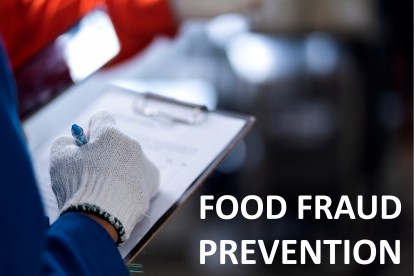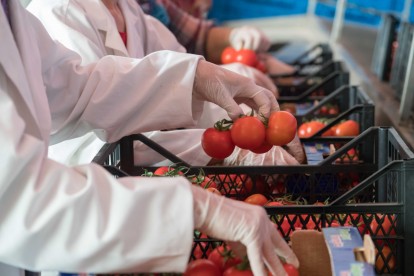Lösungen zur Lebensmittelauthentifizierung als Instrument zur Risikominderung bei Lebensmittelbetrug
A comparative presentation of the records per quarter helps to identify trends from actual detection of fraud incidents in our laboratories. 2023 started with moderate rates of detected fraudulent cases, however the second half of the year was more than worrying.
The rates (13,5% and 14,6% during Q3 and Q4 respectively) exceed any previous figure in our records. The respective figures per product group elucidate areas of higher risk.
Non-alcoholic beverages retained constantly high number of detected non-conformities. Grains/crops suffered mainly by origin mislabeling. The alarming fraud rates in meat and seafood (Q4), spices and flavors (Q3) and nuts/dried fruits (Q1) reflect trends that are very likely more stable than just spikes and highlight the high vulnerability of these sectors currently.
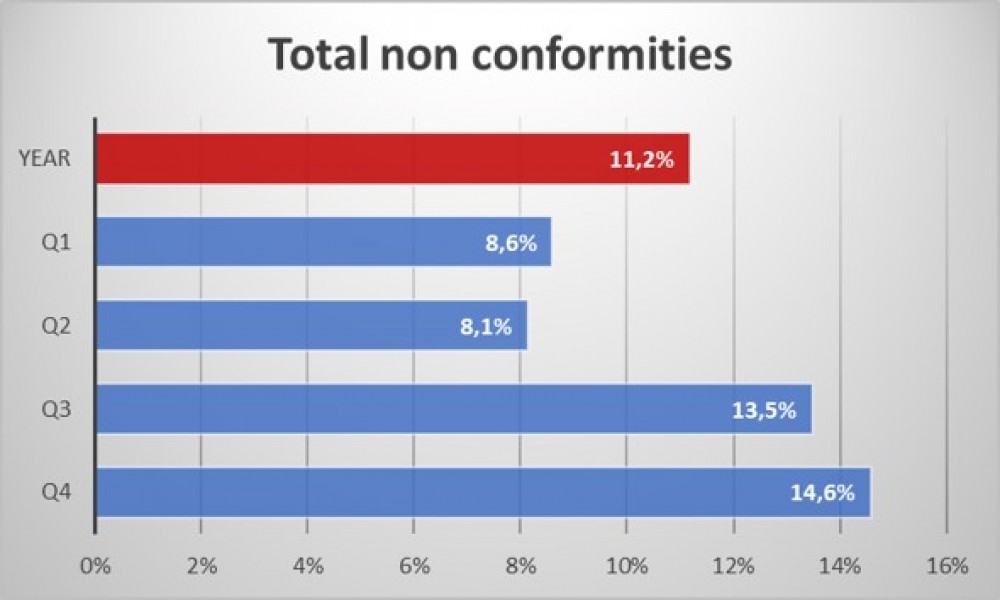
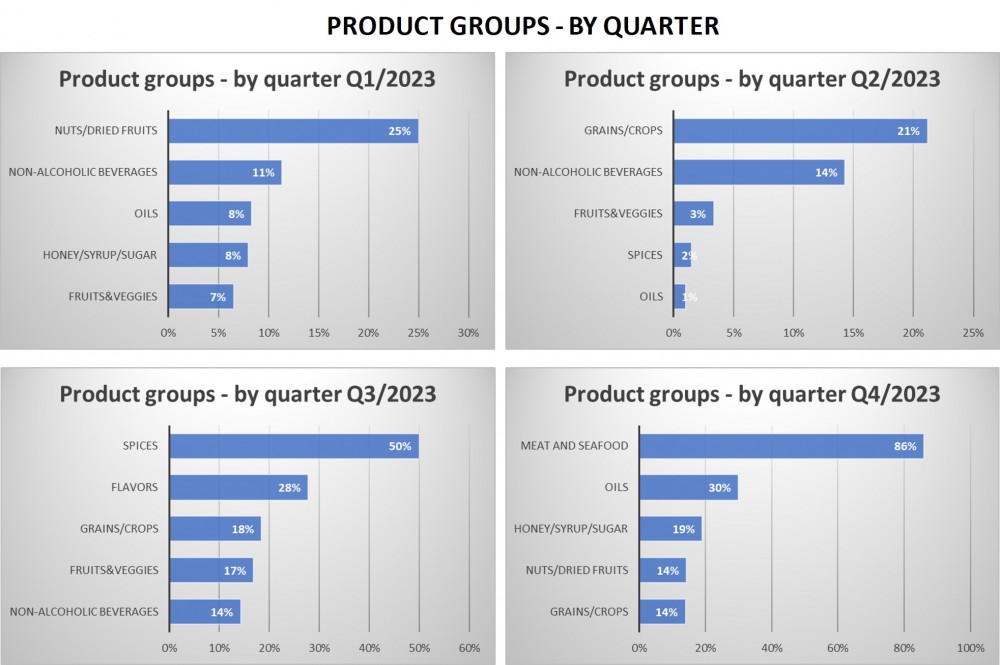
2023 Totals per Fraud type
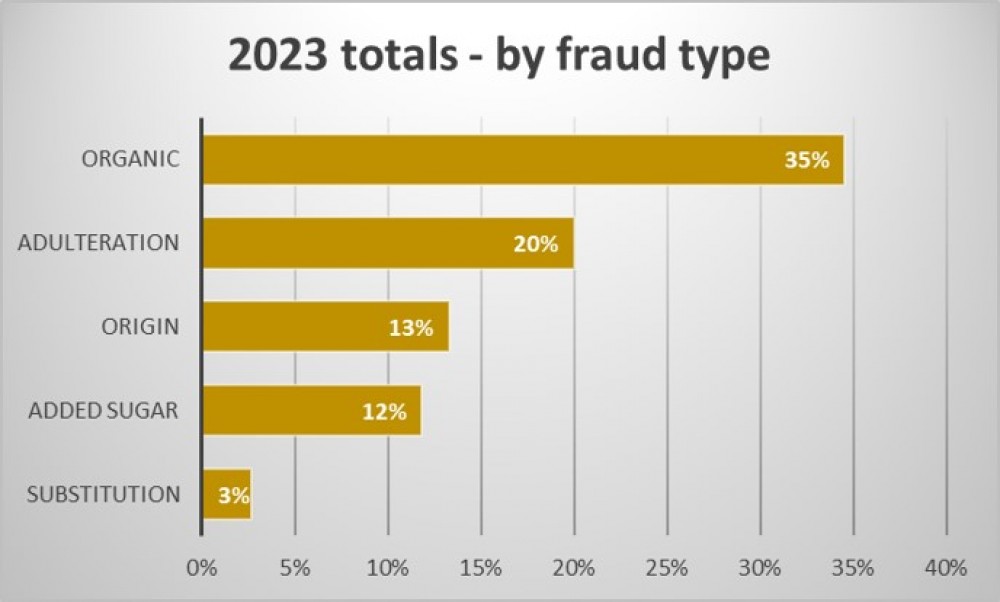
Until the closure of 2023, the total annual frequencies of non-conformities indicated that organic (mainly farmed fish such as salmon and rainbow trout) was the most common fraud type, followed by adulteration (water dilution, ethanol addition, mixed species, enrichment with synthetic substances etc), geographical origin mislabeling and non-declared added sugar.
2023 Totals - per product group
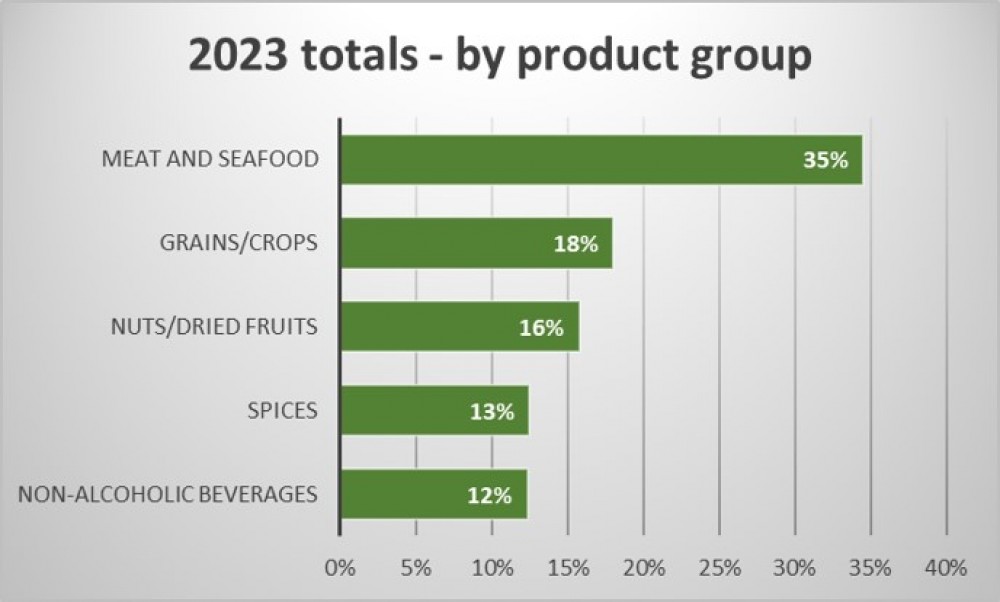
Meat and seafood was the most victimized sector for 2023, mainly due to the devastating rate of non-conformities in Q4 (focus: farmed fish). Grains/crops, nuts/dried fruits and spices were also affected by periods of high rates of non-conformities. These groups could possibly represent the current risks in global supply chains, mostly incurred by global market conditions (warfare, inflation, energy etc). Non-alcoholic beverages were steadily ranked high during 2023 as victims by fraudulent practices.
Data Source: Imprint Analytics GmbH
Note: the records and figures from laboratory findings are a direct reflection of trends and real-time conditions. Nevertheless, they can be biased by different factors, such as types of submitted samples or relative risk in certain samples regarding adulteration probability.
Food Fraud Records 2024
Food authentication solutions as a tool in the food fraud risk mitigation plan
Success Story - Bohemia Sekt
BOHEMIA SEKT s.r.o. und Imprint Analytics GmbH arbeiten zusammen, um Authentizität und Qualität bei der Sektherstellung zu gewährleisten
Success Story - Lidl Österreich
Lidl Österreich und Imprint Analytics GmbH kooperieren zur Sicherung der regionalen Produktion und zur Sicherstellung der Integrität in nationalen Lieferketten
Mini Girls Day 2024
Unser Stand begeisterte junge Wissenschaftlerinnen ...
Navigating the Landscape of Food Authenticity in Agriculture
Brandneuer Expertenartikel zum Thema Lebensmittelauthentizität!
Food Safety Briefing mit David Psomiadis noch on demand verfügbar
Inmitten einer wachsenden Flut von Lebensmittelbetrug wird das Streben nach Authentizität und Transparenz wichtiger denn je. Während die Lebensmittelunternehmen sich zwischen neuen Vorschriften zu Nachhaltigkeit, ESG und verantwortungsvoller Beschaffung zurechtfinden müssen, steigen die Ansprüche und Erwartungen der Verbraucher. Lasst uns die Geheimnisse auf unseren Tellern lüften und eine Kultur des authentischen Essens kultivieren.


